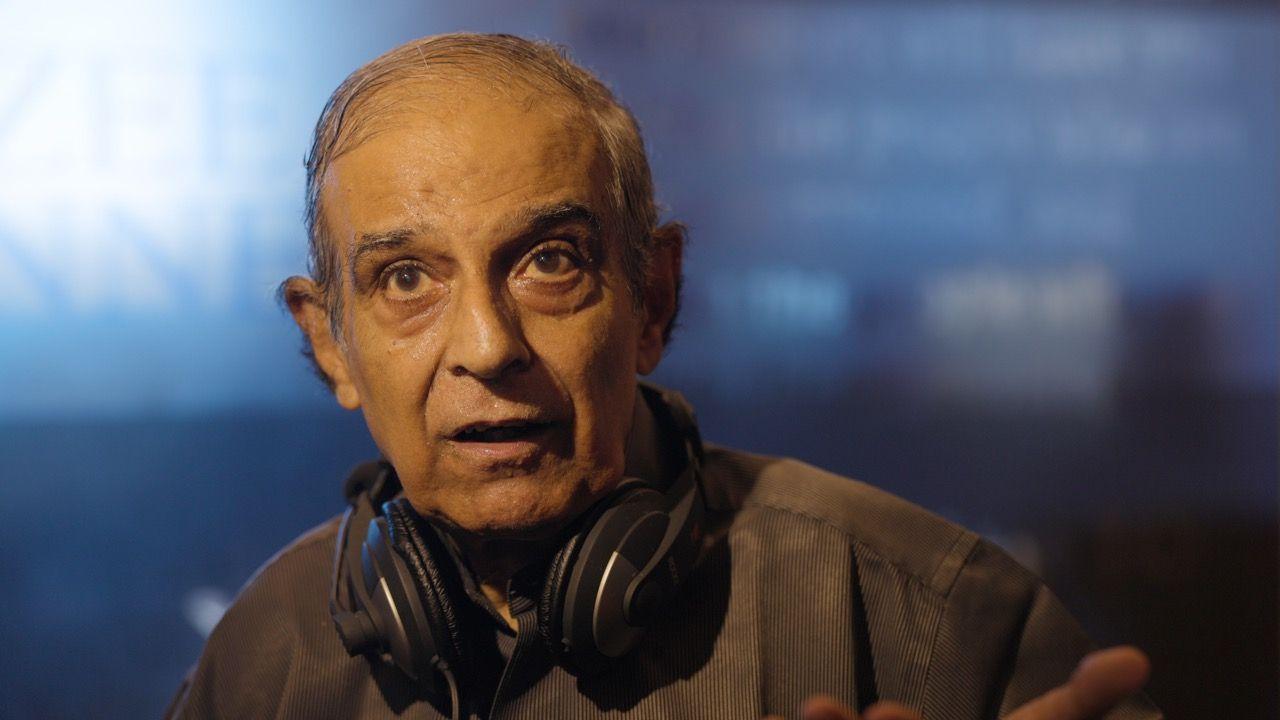Friends pay tribute to the popular film critic who was a ‘quintessential Dhobi Talao neighbourhood figure’

Mumbai film critic Rashid Irani at the Press Club in Mumbai. Photo: Rafeeq Ellias
In the demise of film critic and historian Rashid Irani, Mumbai has lost one of its great cinephiles and Dhobi Talao, a regular patron of its famed movie houses and Parsi cafes. Irani was found dead in his home in Dhobi Talao on July 30. He was 74. The noted critic had written for several national dailies including The Times of India and Hindustan Times. During his extensive career, the Mumbaikar—who was a popular face at the Mumbai Press Club —was also a part of the selection committee for the Mumbai Academy of Moving Images (MAMI) festival.
ADVERTISEMENT
Rafeeq Ellias, city-based filmmaker and friend of Irani, who visited him regularly in the last one year till 15 days ago, said Irani was very upset in the early days of the lockdown because he was deprived of cinema and was starving for it. “It was killing him much more than the absence of vegetables on the street. It is at that time that the Mumbai Press Club arranged that he could watch movies there daily, on a computer which was provided by Anurag Kashyap and an internet connection provided by MAMI,” Ellias observes, while making arrangements for the funeral service, which will be held tomorrow. Irani spending time at the Press Club in Mumbai watching movies during the Covid-19 pandemic. Photo: Rafeeq Ellias
Irani was a core member of the Mumbai Press Club's film society and Ellias emphasises that the club became Irani's second home during the pandemic time. It helped him sustain and watch movies at the media centre. “He was there at 9:30 am and left by 5:30 pm. Whenever I met him at Edward restaurant for tea or breakfast, he was always in a hurry to watch the movies there. He would see anything between three to five movies every day,” he recalls. “His great desire was to die in a cinema hall and not at home.” Irani lived alone.
Ellias, who is currently working on a documentary about the film critic, had managed to show him a few bits of it. He is sad that he could not show him the full film, which is now almost complete. “All the friendships that he had all over the city, country and many parts of the globe have come about because of the conversations he had at his restaurant [Brabourne]. It was frequented by film lovers, authors, poets, writers and visiting journalists. It was also because he was a part of every film festival in the country. His sheer passion for cinema was a great connecting force.”
A passion that translated into him possessing the love for a wide-range of cinema which included Hollywood as well as arthouse cinema. Ellias adds, “He was very open-minded about cinema and it had to be good. It started with Hollywood, James Dean and Marilyn Monroe, and that was the turning point for him. He loved Clint Eastwood as much as he loved Juliette Binoche, and loved the former not only as an actor but also a director.” Rashid Irani spending time at one of the Irani cafes in Dhobi Talao. Photo: Bombaywalla Historical Works
Simin Patel, who runs the popular city history blog Bombaywalla, spoke to Irani while working on a book about the Irani cafés of Mumbai. She realised that he was a very important part of the fabric of Dhobi Talao, where he co-owned the Brabourne restaurant along with two partners until it shut down in 2008. She explains, “He would later go to Edward restaurant, which is one of the surviving Irani restaurants in the city. He would be there having chai and chatting with everybody and having chai with Ronnie, the owner. So, his Irani café life still continued because he continued to be a customer of these cafes till now.” He also frequented Paris Bakery, which helped him during Covid-19, and Sassanian restaurant, which was his old haunt.
Being a person who regularly visited the cafes in the area, the Covid-19 pandemic played spoilsport to his daily interactions. Patel informs that more than affecting his physical health, the pandemic took an extreme toll on his mental health. “Rashid in the last few years still inhabited the Dhobi Talao Irani milieu even though his restaurant went away a decade ago. Even though Dhobi Talao is changing, everything of his was still around that neighbourhood. Rashid was a quintessential Dhobi Talao figure and it was his world till the end,” she adds.
Also Read: Memorialising Darryl D’Monte: Bandra locals name garden after veteran journalist
 Subscribe today by clicking the link and stay updated with the latest news!" Click here!
Subscribe today by clicking the link and stay updated with the latest news!" Click here!






